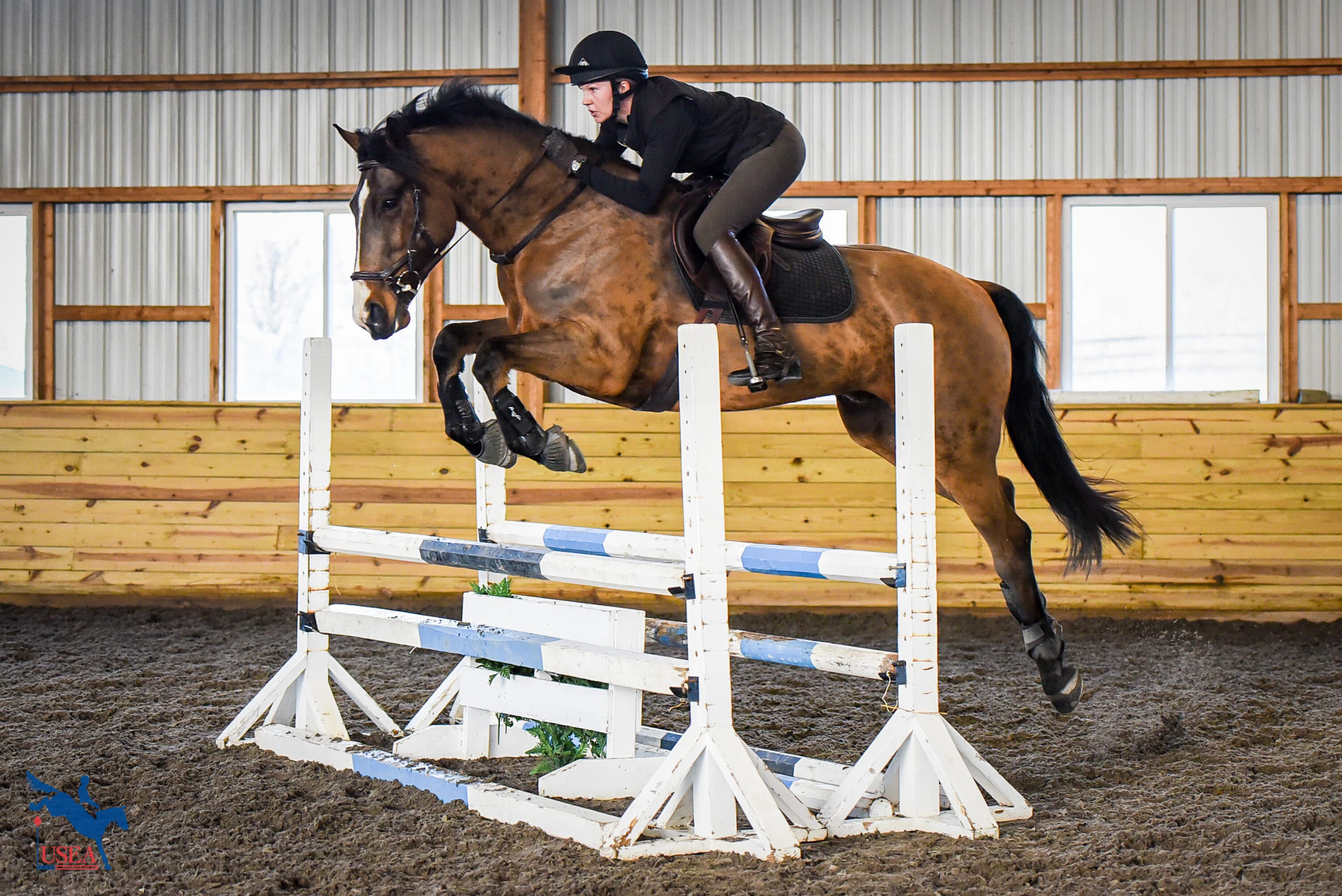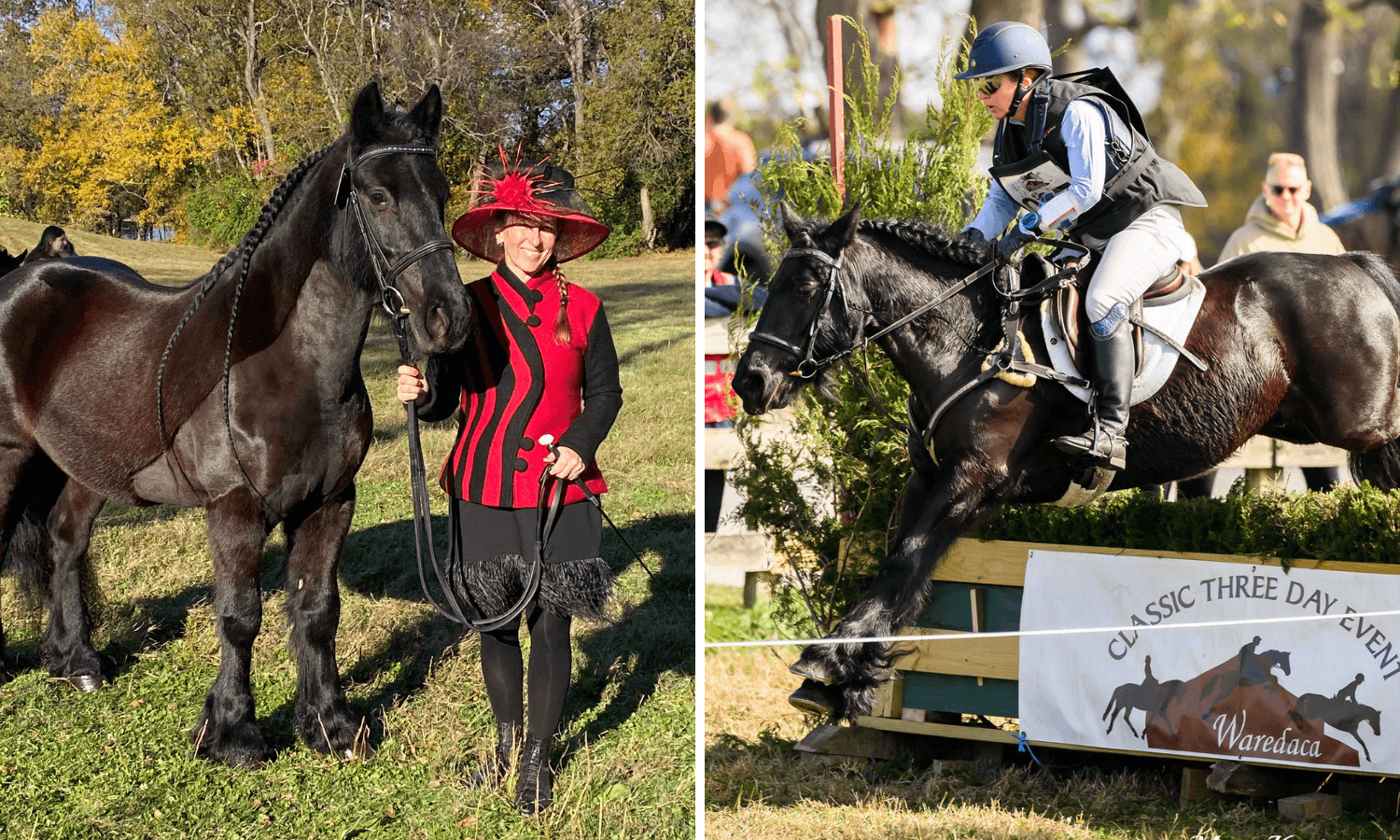How to Make the Best of Your Winter With ICP Level IV Instructor Phyllis Dawson

As we get into the thick of the winter season, those riders who will be braving the colder temperatures throughout the season must modify their programs to keep themselves and their horses in shape. Riding is usually confined to indoor arenas or the occasional snowy outing and riders are forced to limit their training to smaller-scale exercises. For event riders, this time can be difficult as there is no access to long cross-country courses, but according to long-time eventing coach and USEA Instructors' Certification Program (ICP) Level IV certified instructor Phyllis Dawson, this time can actually be beneficial in going back to the basics. Below are a few of her top winter-weather training tips:
1) Use your time in the indoor ring to your advantage, a.k.a. - Work On Your Basics
Between event seasons, which is generally winter, is really the best time to train the horses and improve on both the horse’s and the student’s basics. During the competition season, there are so many elements that you need to prepare for that there isn’t time to step back and work on any basics. The first thing that needs to be done is to evaluate the needs of the horse. For example, if it is a horse that has competed at a high level and has shown heavily throughout the year, it is usually beneficial to give them a break after season and let them be totally off for a month or so before then legging them back up. For a horse that you plan to continue to work throughout the winter, gridwork is a great way to hone in on basic skills. While you can certainly put together courses in the indoor, the grids fit very well and the winter is a very convenient time to focus on them. Dawson says she will often shake up the normalcy of her grids by adding in additional accuracy questions specific to eventing.
As an example, Dawson recommends starting with a cross-rail, and then adding a few more fences behind it; but, instead of simply configuring the grid of rails, try adding a corner in somewhere throughout the line. She also enjoys honing in accuracy questions by starting a grid off with four barrels and then taking away a barrel at a time till the final obstacle consists of only a single barrel. This will encourage precision from the rider and horse throughout an already challenging exercise.
For more green horses and riders, Dawson says to set up your grid or gymnastics as a trot-in, canter-out exercise. However, for those that are more experienced, she will build as a canter-in so the team is also asked to work on the jumping canter rhythm and cantering into that kind of complex exercise.
“The accuracy questions asked in cross-country now are so complex, even down to the Novice level, that you can’t afford to not work on them in the winter,” she explained.
2) Keep things fun
Frankly, it can get a little dreary in the winter. Dawson recommends the occasional fun and games day to promote mental health in both rider and horse.
“Sometimes we will play games, set up a free jump chute, practice bareback jumping, or even set up some barrel racing patterns just to mix things up. The important thing is to know the comfort level of your students and to use the horses you know are experienced enough to handle the change and will enjoy it as well.”
3) Get outside when you can
While most of the heavy work will be done in the indoor, especially in slightly more southern states such as Virginia where Dawson says riding out on the snow is perilous once it starts to warm up, she emphasizes the importance of even hacking the horses down the driveway and back to keep them acclimated to being outdoors. She only recommends riding in the snow when you are certain the footing will stay powdery, warning that otherwise ice balls can form in the horse’s feet and cause injury.
“If you end up spending the entire winter in the indoor then the horses can definitely be a little feral going out in the spring,” she detailed. “Even if it’s just a walk down the road and back, keeping your mount working outside some will reduce the risk of bad behavior later on.”
4) Refer to the New USEA Eventing Handbook for a breakdown of basic exercises and skills by the levels
According to Dawson, the ICP has revamped its program and created an informative USEA eventing handbook by the levels which will be released in the new year. This handbook of levels acts as a great resource because it lays out at each level what the instructors should be focusing on and what skills the rider should have while also giving examples of useful exercises. For riders trying to stay in shape at home but are unsure of exactly what they need to work on, the handbook acts as a detailed guideline to help keep you on track.















